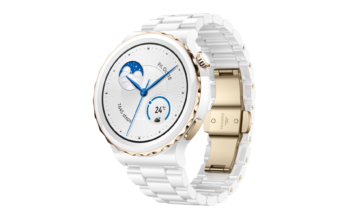
Creaky joints may sound like a sign that you’re getting older and your body is falling apart, but in most cases your noisy knees are nothing to worry about. Let’s take a quick look at why joints make noise and how to know if there’s really a problem.
Most snapping sounds are just your body parts rearranging
If you hear a snap or click every time you do a certain movement, one common reason is that the muscles, tendons, or other body parts surrounding that joint are moving past each other. This is especially common in the shoulders, says orthopedic surgeon Kim Stearns of the Cleveland Clinic, because shoulders have so many moving parts.
If this happens during exercise, you can often help the situation by warming up and stretching a bit before you do the motion that makes the noises. A loosened-up muscle or tendon is less likely to be a noisy one.
Creakiness is common, even in healthy joints
A creaking, crackling sound from the knees or other joints is known as crepitus, and it’s more common in older people than younger ones. People with osteoarthritis often have crepitus, leading people with crepitus to wonder if they’re developing arthritis or damaging their joints somehow when they move.
G/O Media may get a commission
Fortunately, that’s not the case. Crepitus is common in people who have arthritis and in people who don’t. The cartilage in our knees becomes rougher-textured over time, and rough cartilage makes more noise when it moves than smooth cartilage, writes Michael Stuart, an orthopedic surgeon at the Mayo Clinic.
Ironically, people often think they should stop doing knee exercises if they make their knees crunch and creak, but Stuart points out that your knees will be healthier in the long run if you have strong leg muscles, so exercises that use your knees will help rather than hurt. This is even true if you know you have osteoarthritis. The Arthritis Foundation points out on their website that “exercise is considered the most effective, non-drug treatment for reducing pain and improving movement in patients with osteoarthritis.”
Is it bad to crack your knuckles and other joints?
A single “pop” sound that you cannot repeat is usually due to a gas bubble inside your joint. Joints are surrounded by a layer of fibrous tissue called a capsule, and inside that capsule is a liquid called synovial fluid, which acts as a lubricant as your bones slide against each other.
The leading theory on how you can crack your knuckles is that bubbles can form and pop in this fluid, and that popping a bubble makes that characteristic knuckle-cracking sound. The reason you can’t usually crack your knuckles twice in a row is because you’ve already popped the bubble, and there isn’t another one available to pop. Wait a bit, though, and another might form.
Is it unhealthy, though? There’s no solid evidence of that. Multiple experts have stated that there’s nothing wrong with cracking your knuckles, including one doctor who cracked the knuckles of only his left hand for 50 years, keeping his right hand as a control. He was not able to find any difference between the health of his joints in his right and left hands.
When to seek medical help for creaking joints
If the noises in your joints are accompanied by pain or swelling, that’s when it’s time to see a doctor. That said, pain or swelling in a joint is a sign of a problem even if it doesn’t occur with creaky noises, so the noises themselves aren’t the issue.
A single “pop” sound can sometimes occur when you tear certain ligaments or tendons, as anybody who has torn the ACL in their knee can tell you. Again, the sound itself isn’t the problem; after you hear that “pop” you’ll notice pain, swelling, or sometimes instability in the joint. (After I tore my ACL, my knee felt kind of loose and wobbly.) Seek care for the injury, and don’t forget to mention the “pop” sound when you’re telling the story of what happened.



